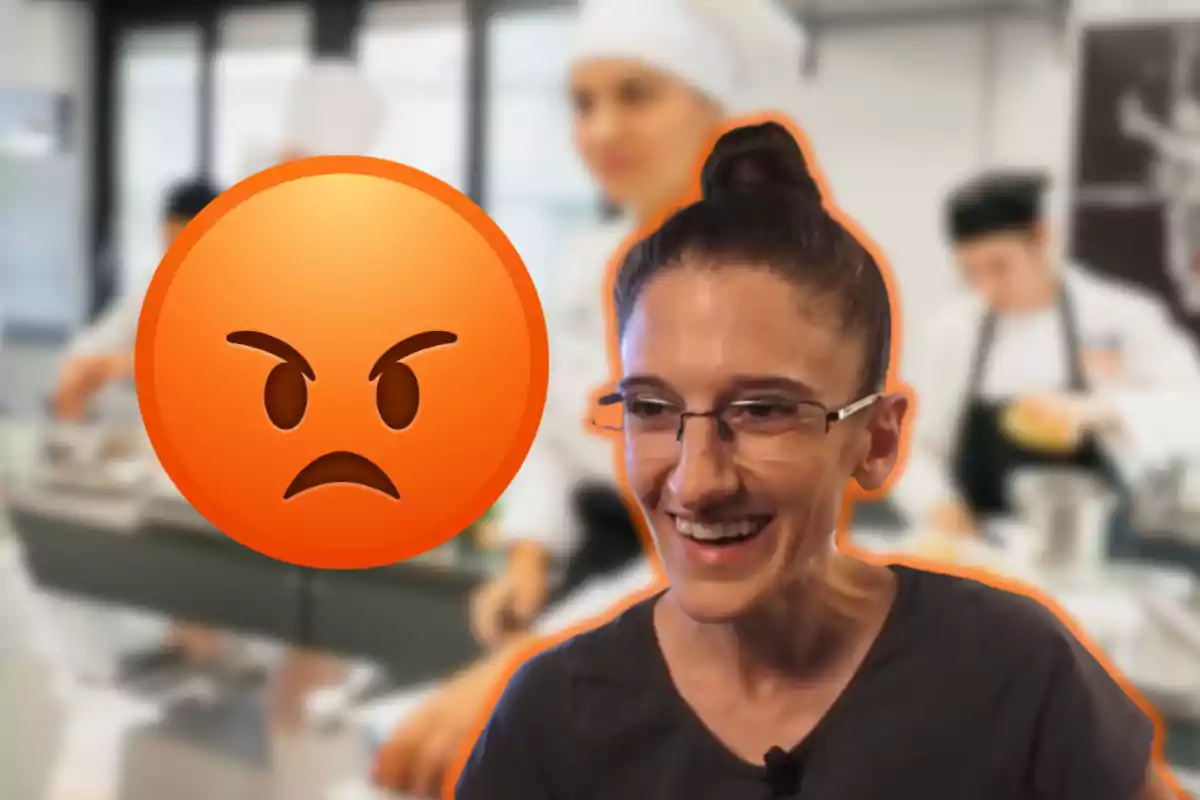Renowned chef Maria Nicolau has once again set social media ablaze with a direct critique of a trend that's increasingly present in high-end dining: the removal of carbohydrates from menus. From her profile on the X platform (formerly Twitter), the chef reported that rice and other filling ingredients are being banished.
With her usual ironic style and no filter, Nicolau wrote: "You're banishing carbohydrates from the menus and what's left is a gastro dining scene in Barcelona with model-sized portions at printer ink prices." The message, halfway between a complaint and satire, has sparked a wave of reactions both for and against.
"Product-based cuisine" that leaves the stomach empty
"Good thing we can buy ourselves a good kebab on any corner as dessert when we leave," she added sarcastically. The comment, though humorous, reveals a deep criticism of the lack of coherence between the values many restaurants claim to uphold and what they actually serve on the plate.

Nicolau questions the logic behind what some chefs call "product-based cuisine." According to her, this label has become an excuse to present dishes that are small in quantity but high in price. "They give you a piece of smoked sardine for 23 euros and you leave hungry," she reported.
Beyond the gastronomic critique, there's also a reflection on the relationship between tradition and modernity. The chef uses rice casserole as an example, a dish that—she says—was created precisely as a way to sell four prawns with a profit margin. In other words, the carbohydrate was the perfect ally for the restaurant to offer a profitable and tasty dish.

The nutritional and economic value of carbohydrates
Carbohydrates—such as rice, pasta, or legumes—are an essential part of the Mediterranean diet. Removing these ingredients because of a culinary trend can end up distorting the identity of Catalan and Spanish cuisine. For Nicolau, this is especially serious when it's done in exchange for a supposedly "refined" or "minimalist" aesthetic that, in reality, impoverishes the dish.
As an alternative, the chef invites users to check out the @socdevida profile, known for sharing images of high-end restaurant dishes where the portion is tiny and the price exorbitant. A visual resource that helps illustrate the type of trend she's reporting: beautifully presented dishes that don't fulfill their basic function of feeding.
Critique with popular roots
Nicolau's message has resonated because it doesn't just talk about food, but about a way of understanding cuisine. Her discourse connects with many people who see how eating out has, in some cases, become an aesthetic experience rather than a nourishing one. Eating well shouldn't be at odds with eating enough.
This isn't the first time the chef has defended these kinds of positions. In previous appearances, she had already questioned trends like pointless foams, endless menus with minuscule portions, or the obsession with plating over flavor. In every case, her starting point is culinary honesty.
Her direct, even provocative, style generates controversy, but also sparks a necessary debate. Are we facing a culinary scene that's lost its way? Does it make sense to pay high prices for incomplete dishes? For Nicolau, the way forward is to recover common sense and not forget that, above all, eating is an act of pleasure and necessity.
The underlying reflection: cooking to satisfy, not just to impress
In a society where many people barely make it to the end of the month, the idea of paying 23 euros for a dish that leaves you hungry is, at the very least, bewildering. Nicolau isn't just reporting a culinary problem, but also a cultural and social one. Eating out is becoming an elitist top-level, far removed from the real needs of the majority.
What the chef is calling for isn't a return to the past, but a recovery of the balance between innovation and common sense. You can be creative without ceasing to be generous on the plate. You can be modern without giving up what's essential. Above all, you can do haute cuisine without forgetting that the diner expects to leave the restaurant satisfied, not hungry.
Thus, with irony, nostalgia, and common sense, Maria Nicolau has once again hit a nerve, stirring up a debate that, beyond the culinary, also speaks to the relationship between cuisine, culture, and social justice.

